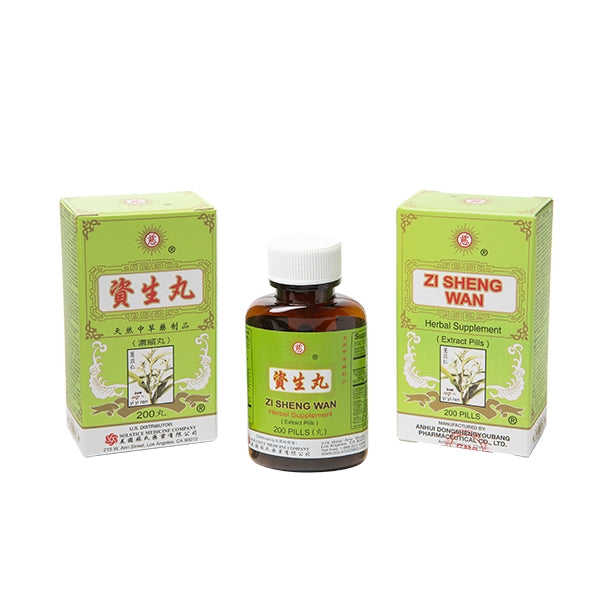
Zi Sheng Wan - Herbal Supplement
Product code: FC30ZS

Zi Sheng Wan is a natural herbal supplement that is relied upon in China to help to soothe an upset stomach. It also is useful in reducing bloating and intestinal gas, as well as supporting the health of your gastrointestinal system and spleen.
Benefits: Zi Sheng Wan contains Chinese Hawthorn Fruit. This herb is believed to be helpful in encouraging the circulation in your extremities. It also helps to relax your blood vessels to support healthy blood circulation. Some users also find that it helps to soothe the stomach.
This product also contains Chinese Licorice Root, which is believed to help aid the digestive system. It has been found helpful by Chinese herbalists to reduce acidity in the stomach and to ease digestive problems.
Manufactured by Anhui Dongshengyoubang Pharmaceutical Co., Ltd.
Product of China
This product contains: Codonopsis Root, Polyporus Sclerotium, Chinese Licorice Root and Rhizome, Chinese Yam Rhizome, Atractylodes Rhizome, Mature Hyacinth Bean Seed, Mature Chinese Hawthorn Fruit, Mature Lotus Seed, Mature Euryale Seed, Massa Fermentata, Barley Sprout, Mature Job's Tears Seed, Mature Tangerine Peel, Chinese Goldthread Rhizome, Alisma Tuber, Mature Chinese Cardamom Fruit, Patchouly Aerial Parts, Balloon-flower Root, and Starch.
DIRECTIONS:
WARNINGS:
STORAGE: